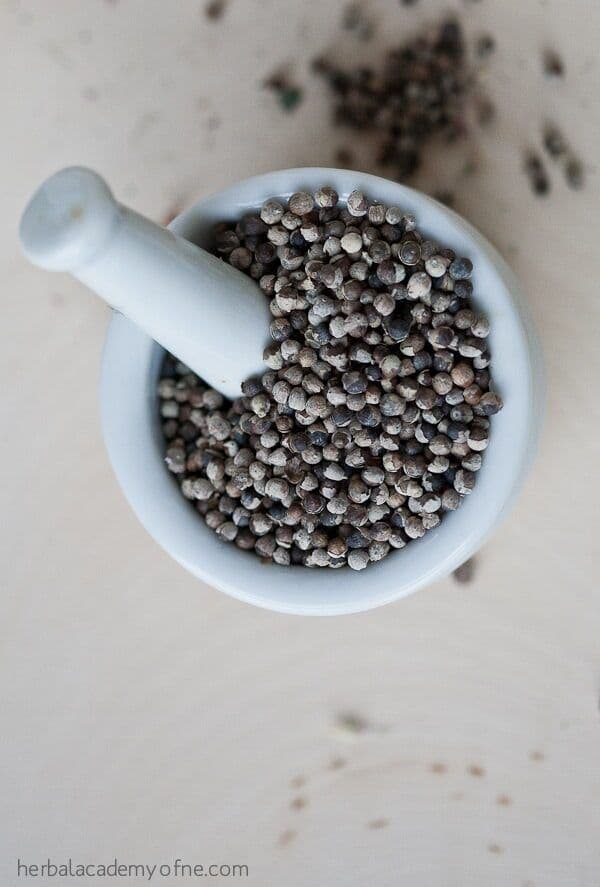
Endometriosis
Endometriosis is a chronic condition impacting millions of women, often causing pain, fertility issues, and other health concerns. This blog covers its symptoms, causes, natural management, and related conditions.
Symptoms of Endometriosis
Symptoms of endometriosis can vary significantly from person to person, but the most common signs include:
-
Pelvic pain: Often associated with menstrual periods, but pain can occur before, during, or after menstruation. The pain is typically more intense than normal period cramps.
-
Pain during intercourse: Deep pain during or after sex is a common symptom.
-
Pain with bowel movements or urination: This usually occurs during menstruation.
-
Excessive menstrual bleeding: Some women experience heavy periods or bleeding between periods.
-
Infertility: Endometriosis is a leading cause of infertility, affecting as many as 30-50% of women with the condition.
-
Fatigue, diarrhea, constipation, bloating, and nausea: These gastrointestinal symptoms are common, especially during menstruation.
It’s important to note that the severity of pain isn’t always linked to the extent of the condition—some women with mild endometriosis may experience severe pain, while others with advanced endometriosis may have little or no symptoms

Causes of Endometriosis
The exact cause of endometriosis is still unknown, but several factors may contribute to its development. Key theories and risk factors include:
-
Retrograde menstruation: This is one of the most commonly accepted theories, where menstrual blood flows backward through the fallopian tubes into the pelvic cavity instead of out of the body. The displaced endometrial cells then implant on pelvic organs.
-
Hormonal imbalances: Estrogen dominance plays a significant role in the development of endometriosis. Estrogen stimulates the growth of endometrial-like tissue, while progesterone, which should help counterbalance estrogen, is often deficient in women with this condition.
-
Immune system disorders: Some experts believe that endometriosis might be linked to immune system problems that fail to recognize and destroy endometrial-like tissue growing outside the uterus.
-
Genetics: Women with a family history of endometriosis are more likely to develop the condition.
-
Embryonic cell transformation: Hormones such as estrogen can transform embryonic cells into endometrial-like cell implants during puberty.
Hormonal Health and Endometriosis
Hormonal health is a crucial factor in endometriosis, particularly the role of estrogen. Excessive estrogen, known as estrogen dominance, can worsen endometriosis symptoms by promoting the growth of endometrial-like tissue. Women with endometriosis may also have reduced levels of progesterone, which can lead to further hormonal imbalances.
Balancing estrogen and progesterone levels is essential for managing the condition, and many natural and medical treatments aim to restore this hormonal balance.

Natural Ways to Manage Endometriosis
Managing endometriosis often requires a multi-faceted approach that includes both medical interventions and lifestyle changes. Here are some natural ways to help manage the condition:
-
Diet and Nutrition:
-
A plant-based, anti-inflammatory diet can help manage endometriosis symptoms. Focus on foods rich in omega-3 fatty acids, such as salmon and flaxseeds, which help reduce inflammation.
-
Cruciferous vegetables (like broccoli, cauliflower, and Brussels sprouts) help support estrogen metabolism and balance hormones.
-
Avoid processed foods, red meat, alcohol, and caffeine, as these can trigger inflammation and worsen symptoms.
-
Adding fiber-rich foods helps eliminate excess estrogen from the body, reducing the effects of estrogen dominance.
-
-
Exercise: Regular physical activity can reduce estrogen levels, improve circulation, and help manage stress, all of which can alleviate endometriosis symptoms.
-
Stress management: Chronic stress can exacerbate hormonal imbalances. Mindfulness techniques like yoga, meditation, and deep breathing exercises can help manage stress and improve overall well-being.
-
Heat therapy: Applying a heating pad to the lower abdomen can relax pelvic muscles, easing pain and cramping during menstruation.



Herbs and Natural Products for Managing Endometriosis
Several herbal remedies and supplements may help manage endometriosis symptoms by balancing hormones, reducing inflammation, and supporting overall reproductive health. Always consult with a healthcare provider before starting any new supplements.
-
Curcumin (Turmeric): Known for its anti-inflammatory properties, curcumin can help reduce inflammation associated with endometriosis.
-
Vitex (Chasteberry): This herb is known to help balance estrogen and progesterone levels, making it particularly useful for women with estrogen dominance.
-
Evening Primrose Oil: Rich in gamma-linolenic acid (GLA), evening primrose oil can help reduce inflammation and alleviate menstrual cramps.
-
Ginger: Ginger is not only anti-inflammatory but also a natural pain reliever that can help with menstrual pain and bloating.
-
Maca root: This adaptogen can help regulate hormones and support endocrine system balance, reducing symptoms of hormonal imbalance.
-
Dong Quai: Traditionally used in Chinese medicine, this herb is thought to improve blood flow, reduce pain, and help balance hormones.


Medical Treatment Options
In addition to natural remedies, some women may benefit from medical interventions. These can include:
-
Hormonal therapy: Birth control pills, hormonal IUDs, and GnRH (gonadotropin-releasing hormone) agonists can help reduce or eliminate menstruation, thereby reducing endometriosis symptoms.
-
Pain medications: Over-the-counter NSAIDs (like ibuprofen) can help manage pain and inflammation.
-
Surgery: In severe cases, laparoscopic surgery may be recommended to remove endometrial tissue, cysts, and adhesions.
Conclusion
Endometriosis is a challenging condition, but with the right combination of natural and medical strategies, its symptoms can be effectively managed. By focusing on hormonal balance, anti-inflammatory diets, and stress reduction, women can take control of their health and minimize the impact of endometriosis on their lives.
If you suspect you have endometriosis or have been diagnosed, it's crucial to consult with a healthcare provider to develop a personalized treatment plan. Whether you opt for medical treatments, natural remedies, or a combination of both, managing endometriosis is possible.






